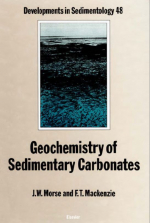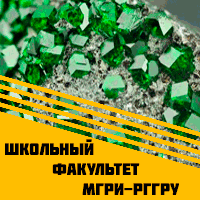Добрый день, Коллеги. Важное сообщение, просьба принять участие. Музей Ферсмана ищет помощь для реставрационных работ в помещении. Подробности по ссылке
Geochemistry of sedimentary carbonates / Геохимия осадочных карбонатов
This book has its roots in the year 1970, when we first met in the carbonates course in Bermuda, Fred as an instructor and John as a student. Over the intervening 20 years, we have been active in research on the geochemistry of sedimentary carbonates in both the field and laboratory and from a theoretical standpoint. During this period, an immense amount of information has been acquired in carbonate geochemistry resulting in a voluminous journal literature and many books on specialized topics. However, with the exception of the now classic book by Bathurst (1974) on carbonate sediments and their diagenesis, no work has been produced that presents an overview of sedimentary carbonate geochemistry. In attempting to teach this topic and through many conversations with colleagues active in research on sedimentary carbonates, we have perceived a need for a book that presents an overview of the field of sedimentary carbonate geochemistry and is reasonably comprehensible to the nonspecialist.
Carbonate minerals are common and important components of sediments and sedimentary rocks. They are of intermediate chemical reactivity among sedimentary minerals, less reactive than evaporite minerals, but more reactive than most silicate minerals. Their chemical characteristics exercise major influences on their accumulation and distribution in sediments, diagenesis, and preservation i n sedimentary rocks. The chemistry of the atmosphere and oceans is controlled in part by reactions of these minerals with natural waters. These interactions are important in regulating climate and must be considered in such environmentally important issues as the fate of fossil fuel C02. The facts that at least 60% of the world's known petroleum reserves occur in carbonate reservoirs (e.g., Roehl and Choquette, 1985) and that carbonate cements exert a major influence on the porosity and permeability of petroleum reservoirs in other lithic types mean that an understanding of the geochemistry of sedimentary carbonates is of considerable economic importance. In addition, much of our insight into paleoclimatology and paleooceanography is based on geochemical interpretations of the composition of the carbonate minerals.<...>




